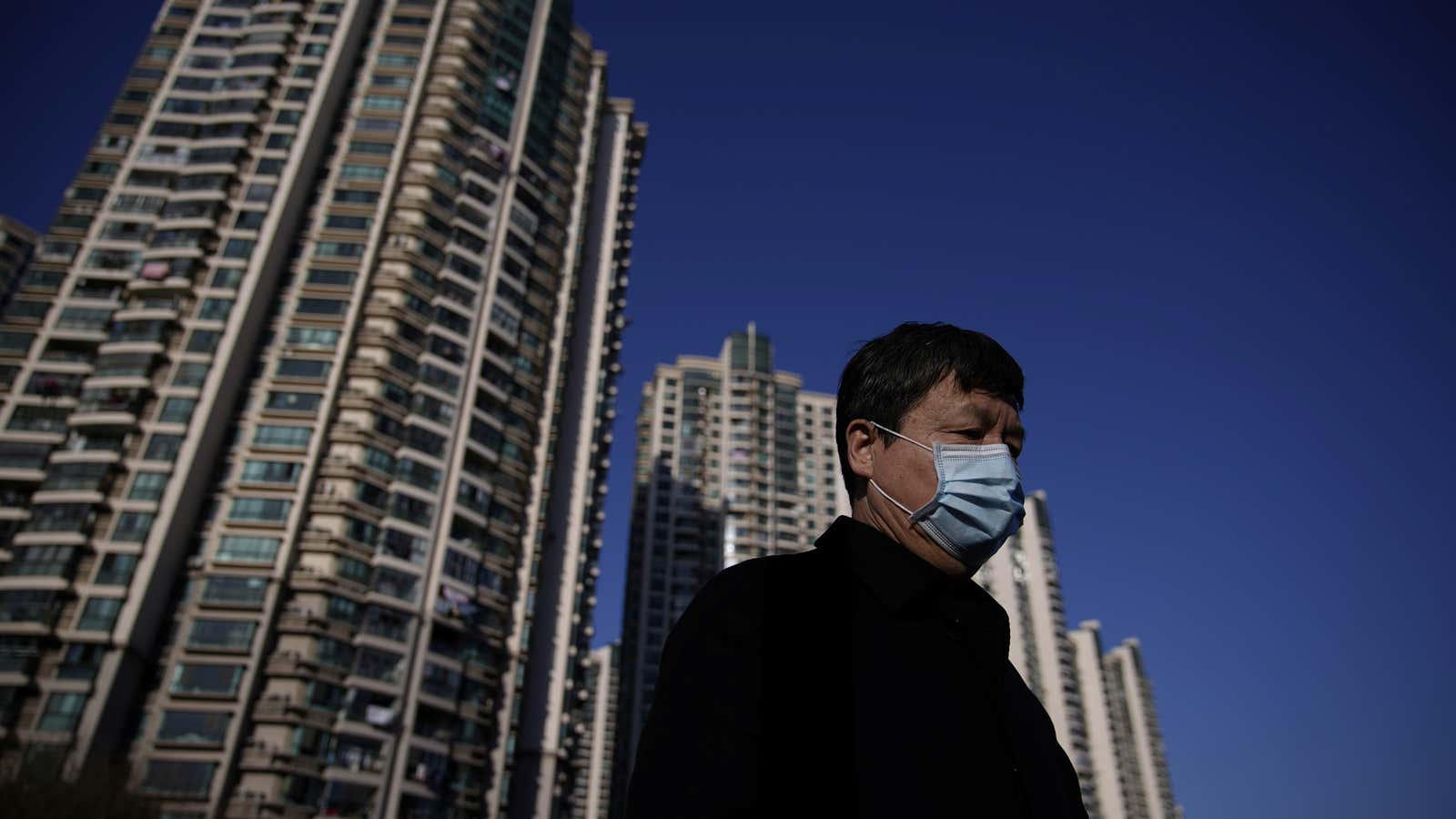A key Chinese respiratory disease expert said that some discharged coronavirus patients could still carry the virus and be infectious, potentially posing another complication to Beijing’s efforts to control the epidemic.
Zhao Jianping, the head of the coronavirus containment team in worst-affected Hubei province, said a minority of patients who were discharged from hospital after tests showed they were negative for the virus later tested positive again. China counts patients whose throat or nose swabs show up positive for the virus in a nucleic acid test, and those whose CT scans show lesions in their lungs, as infected cases. The criteria for deciding if a patient has recovered varies between provinces, but in general Chinese hospitals require people to test negative twice in a row, and to show no obvious symptoms such as a fever. Patients who are released are supposed to check in with their hospital and can face retesting—which is when some tested positive again.
“That means during the period when a patient deemed recovered leaves the hospital and goes back home, they could infect the people they are in touch with,” Zhao told Beijing News (link in Chinese, Feb. 18). “As this kind of situation exists, we encourage recovered patients to also be put on quarantine for 14 days,” he said. One possible reason for the later positive results could be due to the varying quality of testing kits, he said, meaning the patients were not actually fully recovered at the time of release.
In an interview (link in Chinese) with Southern People Weekly yesterday (Feb. 20), Zhao said he considered this a “highly dangerous” situation: “Where could you put such patients? They could infect others being at home, but they would also occupy the stretched resources at hospitals if they are there.”
China reported 889 new cases and 118 further deaths through Thursday (Feb. 20), bringing the total number of confirmed cases to 75,465, while 2,236 have died from the illness, according to the national health commission. Around a quarter of the newly confirmed cases came from two prisons in Shandong and Zhejiang province, which reported 227 cases yesterday. The head official for Shandong’s department of justice was sacked (link in Chinese) over the infections, according to the Beijing News.
Millions of people remain on lockdown in China, restricted from leaving their homes, and many companies continued to work from home this week to prevent contagion, steps that appear to have yielded results. But as China tries to moderate the hit to its economy, and workers start returning to offices and factories in greater numbers in coming days, there’s a risk of an increase in new cases.
“The most difficult period of the spread of the coronavirus has passed in Hubei… But we need to stay vigilant, because the number of confirmed cases could bounce back again if we relax the current measures too much,” said Zhao, who also warns that rather than outbreak being brought to a conclusive end, as with the coronavirus SARS in 2003, people may have to learn to “co-exist” with the new coronavirus, as they do with the flu.
